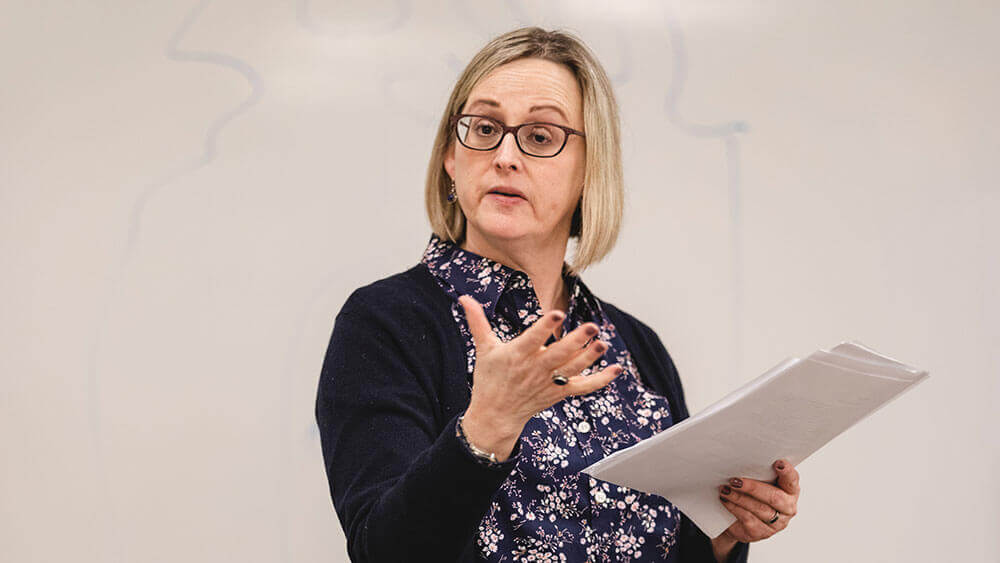
Learning history by living it
Jill Fehleison
Professor Jill Fehleison’s students not only engage with the past, they get to embody history’s main players and navigate its most significant moments.
Fehleison has long used “Reacting to the Past,” an active learning tool featuring role-playing, to bring courses on Colonial Latin America and Tudor/Stuart Britain to life. Her students have reenacted everything from Hernán Cortés’ first meeting with the Aztecs to key moments in the wars between the Tudors and Stuarts.
“It’s a totally different way of historical learning,” Fehleison said. “The games help students understand the complexity of history, and how even small decisions made by key historical figures have shifted its course.”
Students are split into groups, assigned character roles and given a game booklet containing historical documents, background context and a schedule. Throughout the semester, these "factions" must collaborate with one another to advance their objectives, producing papers, speeches, newspaper articles and presentations in class that accurately express their characters’ beliefs.
Whether negotiating entry into the Aztec capital, or passing landmark legislation through English Parliament, Fehleison’s students must navigate many tension-filled moments, often tackling genocide, slavery, race issues and other sensitive topics along the way.
“Since they are playing roles, it becomes easier for them to talk about difficult issues more freely,” Fehleison said.
The simulations are often exercises in how people with very different ideas and backgrounds attempt to reach an understanding or learn to live together, which is as relevant today as it was centuries ago. Fehleison believes that this facilitates a sense of empathy and a widened perspective among her students.
“In the end,” she said, “that’s exactly what the humanities are supposed to do.”
